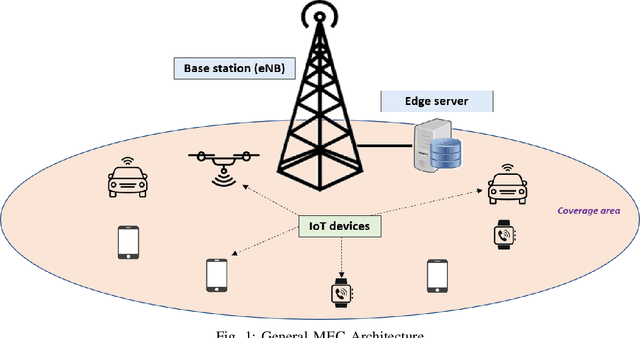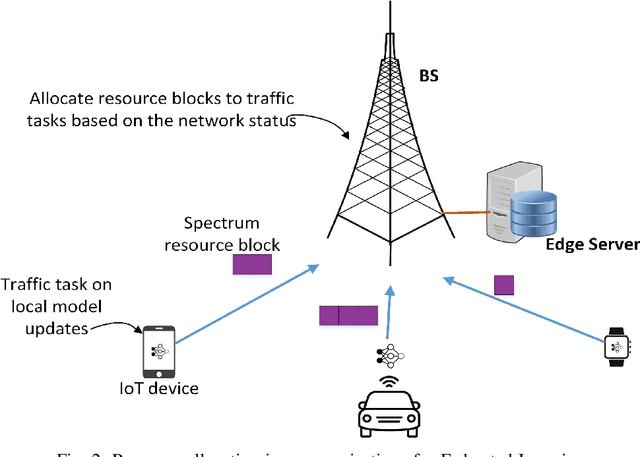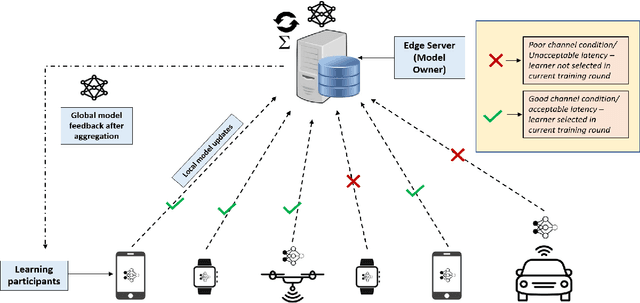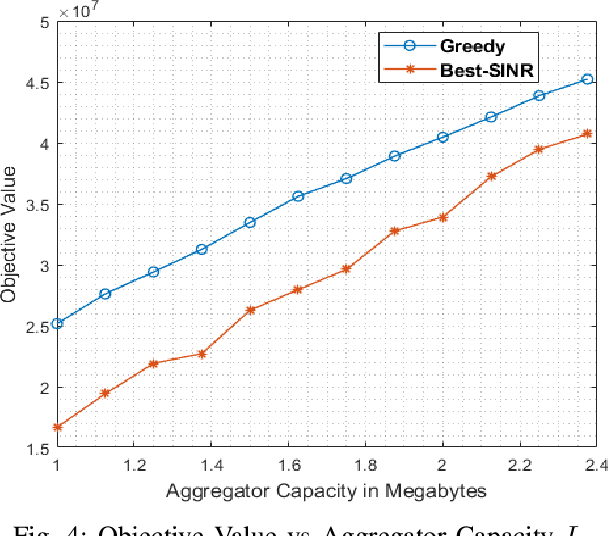Federated Learning in Mobile Edge Computing: An Edge-Learning Perspective for Beyond 5G
Paper and Code
Jul 15, 2020



Owing to the large volume of sensed data from the enormous number of IoT devices in operation today, centralized machine learning algorithms operating on such data incur an unbearable training time, and thus cannot satisfy the requirements of delay-sensitive inference applications. By provisioning computing resources at the network edge, Mobile Edge Computing (MEC) has become a promising technology capable of collaborating with distributed IoT devices to facilitate federated learning, and thus realize real-time training. However, considering the large volume of sensed data and the limited resources of both edge servers and IoT devices, it is challenging to ensure the training efficiency and accuracy of delay-sensitive training tasks. Thus, in this paper, we design a novel edge computing-assisted federated learning framework, in which the communication constraints between IoT devices and edge servers and the effect of various IoT devices on the training accuracy are taken into account. On one hand, we employ machine learning methods to dynamically configure the communication resources in real-time to accelerate the interactions between IoT devices and edge servers, thus improving the training efficiency of federated learning. On the other hand, as various IoT devices have different training datasets which have varying influence on the accuracy of the global model derived at the edge server, an IoT device selection scheme is designed to improve the training accuracy under the resource constraints at edge servers. Extensive simulations have been conducted to demonstrate the performance of the introduced edge computing-assisted federated learning framework.
 Add to Chrome
Add to Chrome Add to Firefox
Add to Firefox Add to Edge
Add to Edge